 W
WSalvador Agron, a.k.a. "The Capeman", was a Puerto Rican gang member who murdered two teenagers in a Hell's Kitchen park in 1959. Agron mistook both teenagers for members of a gang called the Norsemen who were supposed to show up for a gang fight. Agron was the subject of the musical The Capeman by Paul Simon.
 W
WJack Agüeros was an American community activist, poet, writer, and translator, and the former director of El Museo del Barrio.
 W
WJosé S. Alegría, was a poet, writer, lawyer and politician. Alegría was a founding member of the Puerto Rican Nationalist Party and president of the political organization from 1928 to 1930.
 W
WDr. Manuel Antonio Alonso Pacheco was a writer, poet and journalist. He is considered to be the first Puerto Rican writer of notable importance.
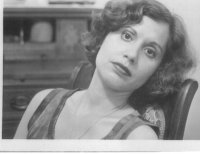 W
WMaría Arrillaga is a Puerto Rican poet who has been a professor at the University of Puerto Rico. She taught in the Spanish Department on the Rio Piedras campus. She is a member of PEN American Center as well as PEN Club de Puerto Rico. She was a member of the Women's Writing Committee of PEN International, served as its secretary and organizer for Latin America. Arrillaga was president of PEN Club de Puerto Rico during 1989–1991.
 W
WFrancisco Arriví, a.k.a. Paco, was a writer, poet and playwright known as "The Father of the Puerto Rican Theater."
 W
WYolanda Arroyo Pizarro is an award-winning Puerto Rican novelist, short story writer and essayist.
 W
WMaría Teresa Babín Cortés was a Puerto Rican educator, literary critic, and essayist. She also wrote poetry and plays. Among her best-known works is Panorama de la Cultura Puertorriqueña and several essays on Federico García Lorca.
 W
WAlejandrina Benítez de Gautier (1819–1879) was a Puerto Rican poet.
 W
WMaría Bibiana Benítez Batista was Puerto Rico's first female poet and one of its first playwrights. She was the first of three renowned poets in her family, the others being her niece and adopted daughter Alejandrina Benítez de Gautier, and Alejandrina's son José Gautier Benítez.
 W
WGiannina Braschi is a Puerto Rican poet, novelist, dramatist, and scholar. Her notable works include Empire of Dreams (1988), Yo-Yo Boing! (1998) and United States of Banana (2011).
 W
WJulia de Burgos García was a Puerto Rican poet. As an advocate of Puerto Rican independence, she served as Secretary General of the Daughters of Freedom, the women's branch of the Puerto Rican Nationalist Party. She was also a civil rights activist for women and African/Afro-Caribbean writers.
 W
WZenobia Camprubí Aymar was a Spanish-born writer and poet; she was also a noted translator of the works of Rabindranath Tagore.
Nemesio Canales was a Puerto Rican essayist, journalist, novelist, playwright, politician and activist who defended women's civil rights. As a politician, he presented a bill to the Puerto Rico House of Representatives, which was defeated 23 votes to 7, giving women their full civil rights, including the right to vote.
 W
WRafael Cancel Miranda was a poet, political activist, member of the Puerto Rican Nationalist Party and an advocate of Puerto Rican independence. On March 1, 1954, Cancel Miranda and three other Nationalists attacked the United States Capitol building, firing 30 shots and injuring five congressmen. The four were arrested, convicted, and sentenced to long prison terms. In 1979, Cancel Miranda was pardoned by United States President Jimmy Carter.
 W
WManuel Corchado y Juarbe was a Puerto Rican poet, journalist and politician who defended the abolition of slavery and the establishment of a university in Puerto Rico. Through his written works he criticized the way the people of Puerto Rico were being treated by the island's Spanish-appointed governor.
 W
WJuan Antonio Corretjer was a Puerto Rican poet, journalist and pro-independence political activist opposing United States rule in Puerto Rico.
 W
WAntonia Darder is an American scholar, artist, poet and activist. She holds the Leavey Presidential Endowed Chair in Ethics and Moral Leadership in the School of Education at Loyola Marymount University. She also is Professor Emerita of Educational Policy, Organization, and Leadership at the University of Illinois at Urbana-Champaign.
Dr. José Antonio Dávila was a postmodern Puerto Rican poet.
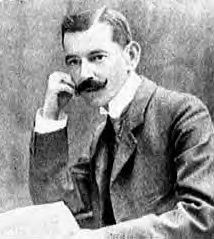 W
WJosé de Diego, was a statesman, journalist, poet, lawyer, and advocate for Puerto Rico's independence from Spain and from the United States who was referred to by his peers as "The Father of the Puerto Rican Independence Movement"
 W
WMartín Espada is a Latino poet, and professor at the University of Massachusetts Amherst, where he teaches poetry. Puerto Rico has frequently been featured as a theme in his poems.
 W
WManuel Fernández Juncos was a Spanish-born, Puerto Rican journalist, poet, author and humanitarian who wrote the official lyrics to La Borinqueña, Puerto Rico's official anthem.
 W
WJaime "Shaggy" Flores is a Nuyorican poet, writer and African Diaspora scholar who forms part of the Nuyorical literary movement.
 W
WIsabel Freire de Matos was a writer, educator, journalist, and activist for Puerto Rican independence. Freire de Matos was the author of several children's books and the wife of Francisco Matos Paoli, a high-ranking member of the Puerto Rican Nationalist Party.
 W
WJosé Martín Antonio Gautier Benítez was a Puerto Rican poet of the Romantic Era.
 W
WEnrique Arturo Laguerre Vélez was a teacher, novelist, playwright, critic, and newspaper columnist from Moca, Puerto Rico. He is the author of the 1935 novel La Llamarada, which has been for many years obligatory reading in many literature courses in Puerto Rico.
 W
WJesús Abraham "Tato" Laviera was a Latino poet and playwright in the United States. Born Jesús Laviera Sanches, in Santurce, Puerto Rico, he moved to New York City at the age of ten, with his family, to reside in the Lower East Side. Throughout his life he was involved in various human rights organizations, but was best known as a renowned Nuyorican poet. An obituary for NBC Latino describes him as "one of the greatest representatives of the Nuyorican movement."
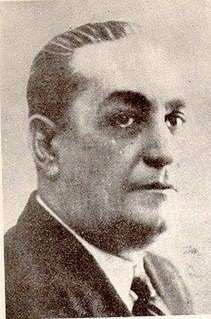 W
WLuis Llorens Torres, was a Puerto Rican poet, playwright, and politician. He was an advocate for the independence of Puerto Rico.
 W
WHugo Margenat, was a Puerto Rican poet and Puerto Rican Independence advocate. His art was committed to serving a militant nationalistic agenda. He was the founder of the political youth pro-independence organizations "Acción Juventud Independentista" and the "Federación de Universitarios Pro Independencia".
 W
WFrancisco Matos Paoli March 9, 1915 – July 10, 2000), was a Puerto Rican poet, critic, and essayist who in 1977 was nominated for the Nobel Prize in Literature. His books were rooted in three major literary movements in Latin America: Romanticism, Modernism, and Postmodernism.
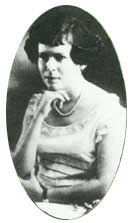 W
WDr. Concha Meléndez was an educator, poet, and writer. She was the first woman to belong to the Puerto Rican Academy of Languages.
 W
WNancy Mercado Ph.D. is an American writer, editor, educator and activist; her work focuses on issues of injustice, the environment, and the Puerto Rican and Latino experience in the United States. She forms part of the Nuyorican Movement, a literary genre which arose from the Beat Movement.
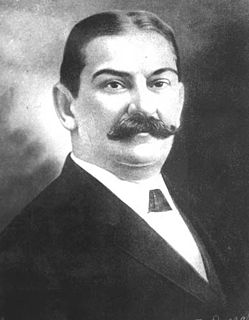 W
WLuis Muñoz Rivera was a Puerto Rican poet, journalist and politician. He was a major figure in the struggle for political autonomy of Puerto Rico.
 W
WMercedes Negrón Muñoz a.k.a. "Clara Lair", was a Puerto Rican poet and essayist who was considered one of the preeminent feminist and postmodernist female Puerto Rican writers of the 20th century.
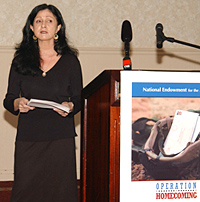 W
WJudith Ortiz Cofer was a Puerto Rican American author. Her critically acclaimed and award-winning work spans a range of literary genres including poetry, short stories, autobiography, essays, and young-adult fiction. Ortiz Cofer was the Emeritus Regents' and Franklin Professor of English and Creative Writing at the University of Georgia, where she taught undergraduate and graduate creative writing workshops for 26 years. In 2010, Ortiz Cofer was inducted into the Georgia Writers Hall of Fame, and in 2013, she won the University's 2014 Southeastern Conference Faculty Achievement Award.
 W
WDr. José Gualberto Padilla, also known as El Caribe, was a physician, poet, journalist, politician, and advocate for Puerto Rico's independence. He suffered imprisonment and constant persecution by the Spanish Crown in Puerto Rico because his patriotic verses, social criticism and political ideals were considered a threat to Spanish Colonial rule of the island.
Luis Palés Matos was a Puerto Rican poet who is credited with creating the poetry genre known as Afro-Antillano. He is also credited with writing the screenplay for the "Romance Tropical", the first Puerto Rican film with sound.
 W
WBenito Pastoriza Iyodo is an author of poetry, poetics, fiction and literary articles. The themes of his literary works include: man's evolution from childhood to adulthood, examination of self, the precipices of culture and its rituals, violence in the cities, examination of stereotypes, the constructs of communication, gender roles and sexuality, education systems and racism, exploitation and the manifestation of exclusion through political and economic powers.
 W
WPedro Pietri was a Nuyorican poet and playwright and one of the co-founders of the Nuyorican Movement. He was considered by some as the poet laureate of the Nuyorican Movement.
 W
WSamuel Ramón Quiñones Quiñones commonly known as Samuel R. Quiñones was a prominent attorney in Puerto Rico who served as Speaker of the House of Representatives of Puerto Rico from 1941 to 1943 and for twenty years in the Senate of Puerto Rico as its fifth President, from 1949 to 1968, by far the longest serving Senate President. He is also the only person two hold both posts.
 W
WManuel Ramos Otero was a Puerto Rican writer. He is widely considered to be the most important openly gay twentieth-century Puerto Rican writer who wrote in Spanish, and his work was often controversial due to its sexual and political content. Ramos Otero died in San Juan, Puerto Rico, due to complications from AIDS.
 W
WSylvia Rexach, was a comedy scriptwriter, poet, singer and composer of boleros.
 W
WEvaristo Ribera Chevremont is a poet from Puerto Rico. Although several of his published books deal with Puerto Rican nationality and regionalism, many of his verses excel in a universal lyrical character, as can be read in books such as El Caos de Los Sueños and El Hondero Lanzó la Piedra, among others.
 W
WLola Rodríguez de Tió,, was the first Puerto Rican-born woman poet to establish herself a reputation as a great poet throughout all of Latin America. A believer in women's rights, she was also committed to the abolition of slavery and the independence of Puerto Rico.
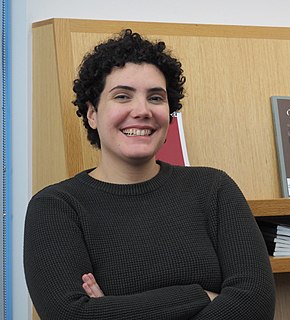 W
WRaquel Salas Rivera is a bilingual Puerto Rican poet who writes in Spanish and English, focusing on the experience of being a migrant to the United States, the colonial status of Puerto Rico, and of identifying as a queer Puerto Rican and Philadelphian of non-binary gender. He has a Ph.D. in Comparative Literature and Literary Theory from the University of Pennsylvania and was selected as the fourth Poet Laureate of Philadelphia in 2018. He currently lives in Puerto Rico.
 W
WFather Francisco Ayerra de Santa María (1630–1708) is considered to be Puerto Rico's first native born poet.
 W
WClemente Soto Vélez was a Puerto Rican nationalist, poet, journalist and activist who mentored many generations of artists in Puerto Rico and New York City. Upon his death in 1993, he left a rich legacy that contributed to the cultural, social and economic life of Puerto Ricans in New York and Latinos everywhere.
 W
WAlejandro Tapia y Rivera was a Puerto Rican poet, playwright, essayist and writer. Tapia is considered to be the father of Puerto Rican literature and as the person who has contributed the most to the cultural advancement of Puerto Rico's literature. In addition to his writing, he was also an abolitionist and a women's rights advocate.
 W
WJosé Luis Vega is a Puerto Rican poet.
 W
WWilliam Carlos Williams was a Puerto Rican-American poet, writer, and physician closely associated with modernism and imagism.